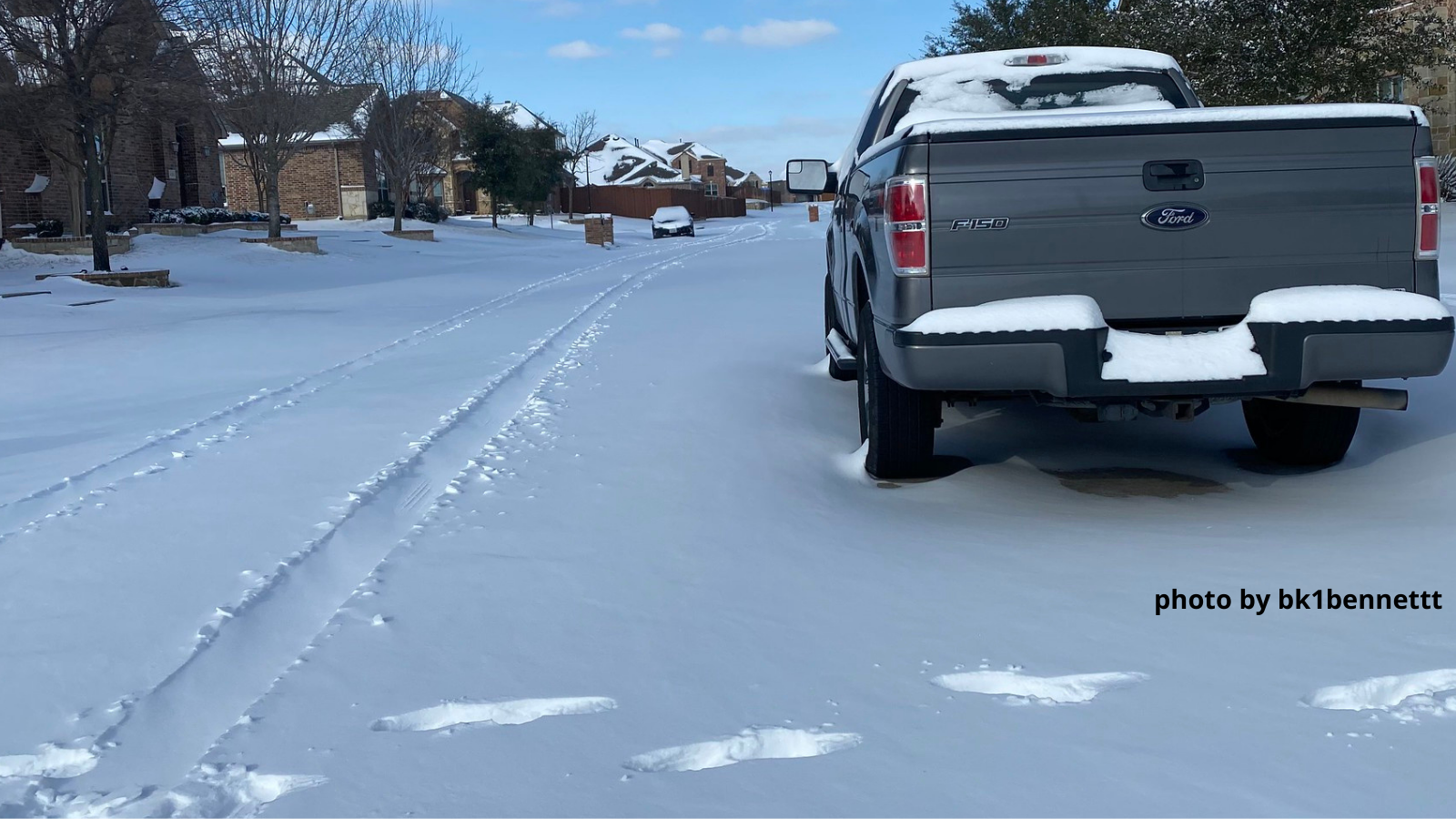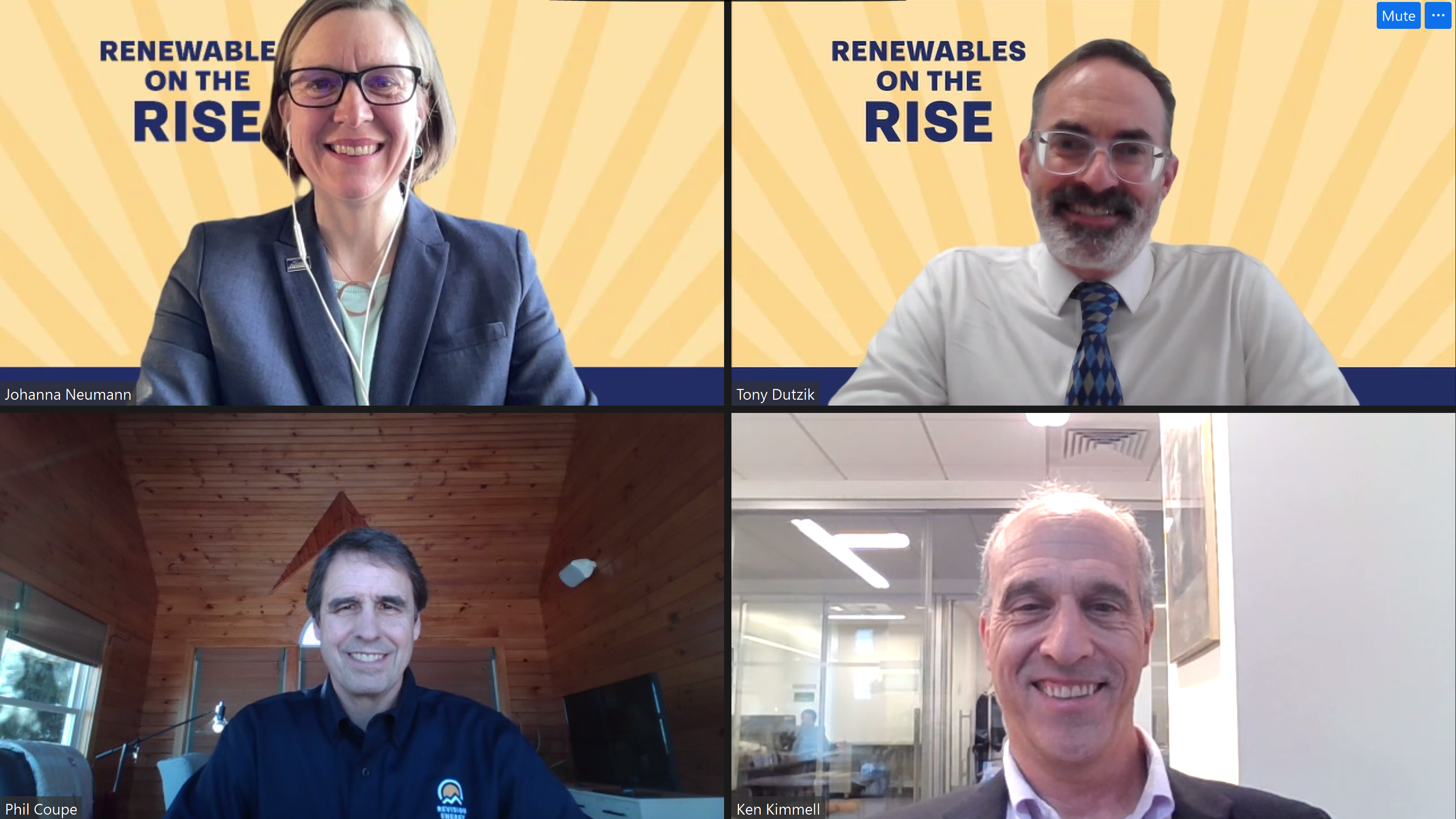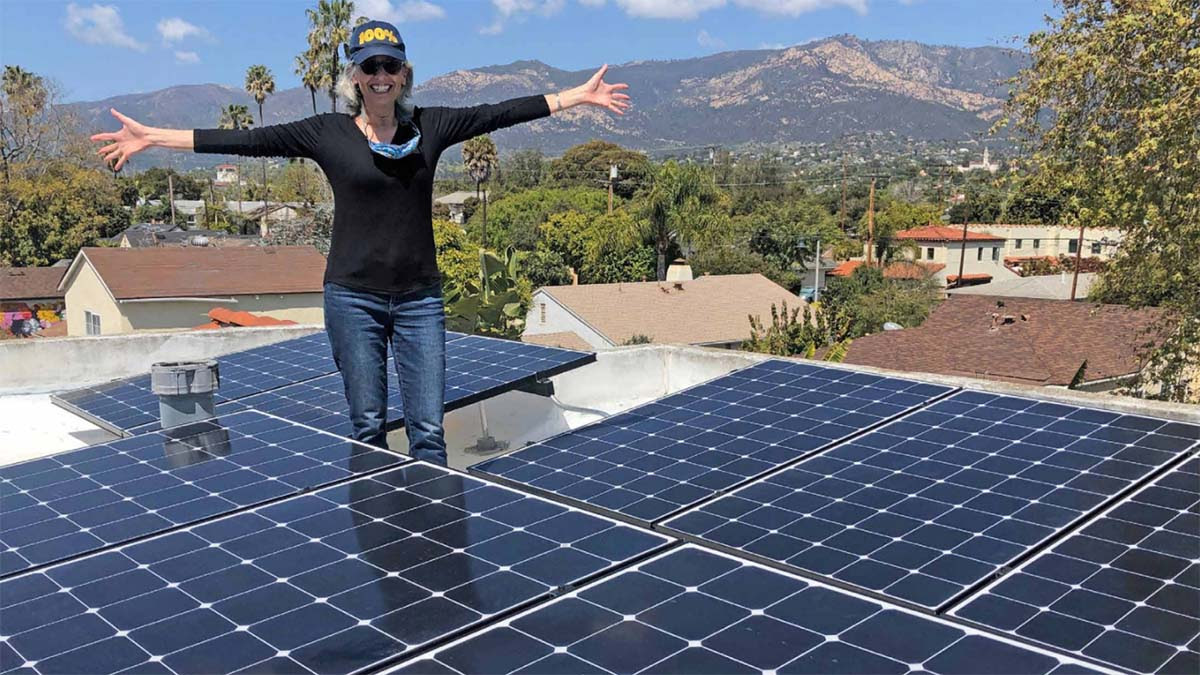Preparing for Another Winter Storm in Texas
As Texas approaches the anniversary of Winter Storm Uri, it may be time to consider how to prepare for another snowpocalypse.

With statewide record breaking heat this December, it may seem unnecessary to prepare again for extreme cold like we saw last year but even more moderate freezes can wreak havoc on the electric grid, ruin pipes, injure loved ones, and damage your home. Better to prepare now than to be caught by surprise.
Over the past year, Texas politicians have failed to sufficiently prepare our state for another winter storm, so you will need to ready yourself and your family. As the climate continues to change, we need to start expecting the unexpected, including sudden winter storms, both now and in the future.
So, here are our tips on how to prepare and stay safe before, during, and after a potentially harmful winter.
Before
Half the battle can be won and avoided simply by knowing what may be coming and adapting as necessary. With eight simple steps you can prepare yourself well before the first snow falls or road ices over.
-
Know the terms (as defined by the National Weather Service):
- Winter storm warning: Experts strongly anticipate that a winter storm will produce heavy snow, sleet or freezing rain capable of substantial impact.
-
Winter storm watch: Meteorologists expect that a winter storm could produce heavy snow, sleet, or freezing rain.
-
Winter weather advisory: light amounts of wintry precipitation or patchy blowing snow will cause slick conditions and could affect travel if precautions are not taken.
Although these terms indicate different levels of severity and certainty, under any of these circumstances it is advisable to prepare yourself and your family.
-
Be alert:
-
Pay close attention to local weather reports.
-
If you don’t have access to cable, follow your local weather station on Facebook or Twitter or use the weather app on your computer or mobile device.
-
Make a habit of checking for weather information daily, especially during the winter months.
-
Sign up for your community’s emergency alert notifications. This will provide important information should a serious situation occur.
-
Protecting pipes:
-
While letting pipes drip can prevent freezing, it also wastes large quantities of water, harming the planet and your wallet. Fortunately, there are more sustainable options:
-
Open cabinet doors under sinks to make sure pipes stay warm.
-
Use microwaved blankets and rice-filled socks to insulate outdoor pipes.
-
For more in-depth information on protecting your pipes check out this blog post.
-
Install and test carbon monoxide detectors:
-
An odorless, colorless gas that can cause sudden illness and death if inhaled, carbon monoxide should be taken seriously.
-
When power outages occur as they did during Winter Storm Uri, the use of wood or other burning, alternative sources of fuel or electricity for heating or cooking can cause carbon monoxide to build up in a home or garage.
-
Installing carbon monoxide detectors throughout your home is the only way to detect a dangerous buildup of carbon monoxide and protect yourself and your family.
-
To prevent a buildup from occurring, never use a grill, camp stove, generator, or any other device which burns gas or wood inside your home.
-
Gather supplies:
-
Food and water:
-
At least a three day supply of water for each member of the household (one gallon per person per day)
-
Trail mix or mixed nuts
-
Peanut butter or other nut/seed butters
-
Bread
-
Canned beans, vegetables, and soups
-
Energy bars
-
Jerky and dried fruit
-
Other non-perishable food items
-
Batteries:
-
Identify what type of batteries are needed for your smoke detectors and carbon monoxide detectors and make sure you have at least one extra set of batteries for each.
-
Check to see what type of batteries are needed for radios and flashlights and have at least one extra set of batteries for each.
-
First aid and Emergency preparedness supplies:
-
Band-aids and other first aid materials
-
Ibuprofen
-
Prescribed medications
-
Personal hygiene products
-
Extra essential products like toilet paper
-
Thermal emergency blankets
-
Learn how to protect your water supply:
-
When water pressure drops, it takes longer for water to move from the treatment plant to your home, providing the opportunity for harmful bacteria to develop.
-
If a water warning is put into effect, any water which could enter your (or even your pets’) body must be boiled at a high temperature for two minutes to kill any bacteria.
-
Water for cooking, bathing, drinking, and even rinsing dishes must be thoroughly boiled. Learning the best, most efficient method for preparing and storing water prior to a winter storm can save you headache and panic later on.
-
Should your city announce a water warning, continue to check for updates. Warnings may be retracted, or reimplemented, so check often to avoid wasting time or accidently consuming contaminated water.
-
Learn how to manage your energy:
-
Energy outages and shortages can cause your electric bill to skyrocket. Learn how to conserve energy before this happens.
-
If you have a variable or wholesale energy plan, you are particularly at risk for price gouging and higher costs, but make sure to check for unusual charges no matter your plan.
-
Read the linked article above for more information about energy pricing and how you can economically prepare yourself for another outage.
-
Look into backup power options:
- Consider buying a battery and solar panels. Distributed energy generation, the localized, smaller-scale production and distribution of energy, are also greener than fossil fuels.
-
Small, portable generators can power small devices and keep a single room warm, but they are unable to power your entire home. If you want to power more than a space heater, a phone charger, your internet, and a fridge, you will need to go bigger.
-
Larger generators are capable of powering your home, but these devices can be expensive.
-
Generators are dangerous, so must be used with great caution. Emitting as much carbon monoxide as 450 cars, these devices kill around 70 people a year in the U.S. Unless kept outdoors and away from doors and windows, even small generators can kill silently and without warning.
During
Even after a severe weather event begins there are options available to remain safe. The three points below will help you should you find yourself without power or transportation.
- Stay off the roads
-
Do everything in your power to remain in your home. Even experienced drivers whose cars are equipped to handle wintery conditions can lose control of their vehicle and put themselves or others at risk. Ice can be difficult to see and most cities in Texas are not equipped to manage winter road conditions.
-
In the case of an accident, those injured could experience much longer wait times until the arrival of emergency professionals due to increased demand. Furthermore, as COVID continues to surge, hospital pressure remains.
2. Learn the signs and treatments for weather-related illness
-
Hypothermia
-
Symptoms: Shivering, exhaustion, confusion, fumbling hands, memory loss, slurred speech or drowsiness.
-
Treatment: Warm the center of the body (chest, neck, head and groin). Keep dry and wrapped up in warm blankets, including the head and neck.
-
Frostbite
-
Symptoms: Numbness, white or grayish-yellow skin, firm or waxy skin.
-
Treatment: soak the area in warm water or use body heat to warm.
3. Utilizing Electric Vehicle Battery Storage:
-
Under certain circumstances, EVs can be used to provide small amounts of electricity to charge phones or other devices
After
When the skies have cleared and roads thawed, the threat of winter fury remains. Our planet is rapidly changing, and we must take action to ensure that we are ready. Even if 2022 does not bring another Uri, 2023 might. Consider the four points below as you think about what you can do to help you and your family in these changing times.
-
Replenish used supplies
-
Take stock of what has been used during the storm and update your stock as soon as possible. Avoid overstocking on essential goods, as others will also need these items and stores may later cancel refunds.
-
Check in with family and friends.
-
Ensure loved ones are safe and accounted for, and make sure they know that you and your household are well. Power and water outages can be sporadic; offering a warm place to sleep or boil water can be exceptionally helpful if friends or family do not have access to necessities.
-
Tell your elected officials to take climate change and weather-related challenges seriously. Following Winter Storm Uri, the Texas government did little to fix the problems which caused the state to suffer. Identify your elected representatives and tell them to take responsibility.
-
Consider supporting Environment Texas. A nonprofit organization, Environment Texas relies primarily on small donations to provide helpful resources for Texans, advocate for the planet, and work to protect our clean air, clean water, and open spaces. Donations allow us to continue producing helpful materials like this post and call elected officials to action both in Austin and Washington, D.C.
Co-written by Seth Billingsley
Topics
Authors
Lennis Barlow
Find Out More

Key takeaways from Renewables on the Rise: Success Stories

Which 10 American retailers can lead the way on rooftop solar?

More rooftop solar, less red tape


